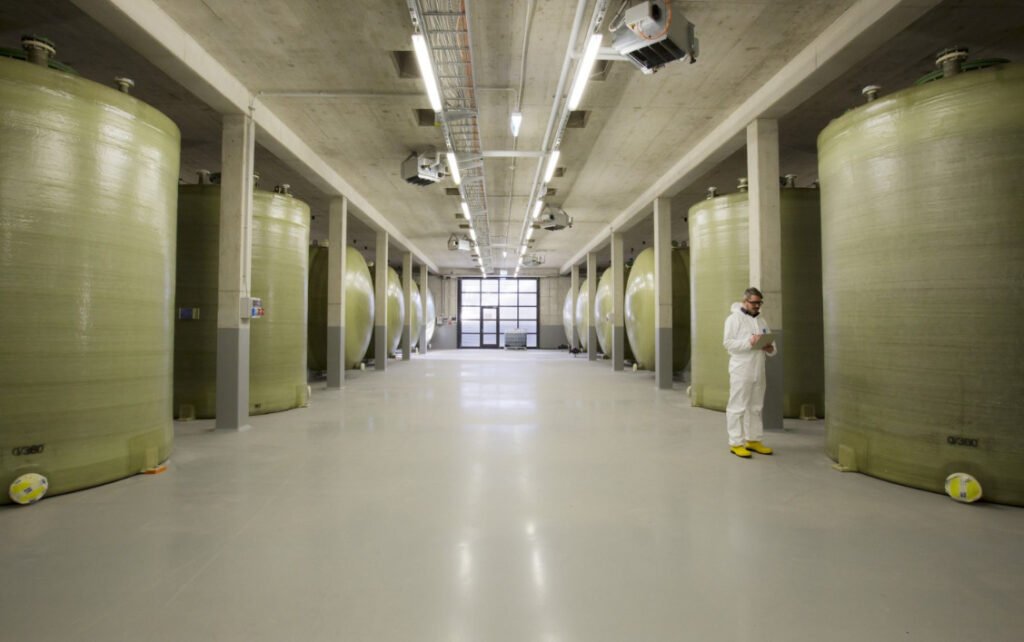A 690kWp solar PV array has been added to an existing 2MW wind turbine, which have been ‘DC-coupled’ meaning both sit behind the same inverter using Ampt’s string optimisers. The companies claimed this combination of solar PV, wind and storage is unique in Europe, and that the project would help Fraunhofer ICT’s campus towards climate-neutrality.
The 10MWh flow battery which completes the trio of technologies was also already operational although the announcement gave no additional details on it, be it technology provider or type of electrolyte used.
However, it appears to be the same flow battery that was deployed as part of Fraunhofer’s ‘RedoxWind’ demonstrator project, pictured further down.
According to a page on Fraunhofer’s website published in 2019, the RedoxWind project saw the deployment of a redox flow battery with a ‘final stage capacity’ of 2MW/20MWh connected directly to the DC circuit of a wind turbine at the Pfinztal campus. The aim of the project was to study the synergies and relationship between the wind plant and the energy storage system.
The RedoxWind project was publicly-funded with equal contribution from the State of Baden-Württemberg and the German Federal Ministry of Education and Research (BMBF). Energy-Storage.news has asked a spokesperson for BayWa r.e. to confirm it is the same project and will update this article if and when a response is received.
Flow batteries providers in the Germany, Austria and Switzerland (DACH) region include Austria-based vanadium redox flow battery (VRFB) company CellCube and Germany-based organic flow battery company CMBlu.
Ampt said its string optimisers use maximum power point tracking (MPPT) to recover energy losses due to voltage and technologies, as well as mitigate energy losses caused by share from surrounding buildings.
Andrea Grotzke, global director of energy solutions at BayWa r.e, commented: “The way we have added solar to the existing wind energy and battery storage system is unique, and in successfully completing this project we were able to further improve our own expertise and capabilities.”

Everdura to manufacture Invinity’s latest VRFB in Taiwan
In related news, VRFB company Invinity Energy Systems has announced that industrial group Everdura will start manufacturing Invinity’s latest product, Mistral, in Taiwan.
The pair have already been collaborating, with Everdura making a 15MWh order agreement in September 2022 which it then updated a year later to include Mistral, the latest generation of Invinity’s VRFB product.
Everdura is already Invinity’s reseller and will now manufacture Mistral VRFBs to fulfil orders, with 255MWh targeted over the next three years. Everdura will pay Invinity a royalty fee based on a material percentage of the sale price of Mistral products sold.
It will use Invinity’s existing supply chain and purchase cell stacks directly from the company, which will continue to be manufactured by Invinity at its production facilities in the UK and Canada.

